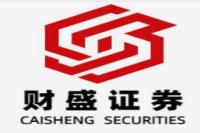Broadcom's AI Bet: A $150B-$200B Market Opportunity? Unpacking the Potential and Pitfalls
Meta Description: Broadcom predicts a massive $150B-$200B AI accelerator market. This in-depth analysis explores Broadcom's AI strategy, market potential, competitive landscape, and potential risks. Learn about the future of AI hardware and Broadcom's role. #Broadcom #AI #ArtificialIntelligence #AIaccelerators #Semiconductors #TechInvestment
Whoa! Hold onto your hats, folks! Broadcom, the semiconductor giant, just dropped a bombshell prediction: a staggering $150 billion to $200 billion market for AI accelerators is on the horizon. That’s not just pocket change; that's a game-changer, potentially reshaping the tech landscape as we know it. This isn't some pie-in-the-sky prediction either; it's based on Broadcom's deep experience and insight into the rapidly evolving AI market. This detailed analysis dives deep into Broadcom's bold claim, examining the market's potential, the company's strategic positioning, the competitive landscape, and the inherent risks involved. We'll explore everything from the technical intricacies of AI accelerators to the broader economic and geopolitical implications. Get ready for a deep dive into the fascinating world of AI hardware and the pivotal role Broadcom is playing. We’ll explore whether Broadcom’s forecast is a realistic reflection of the future or just a savvy marketing ploy. Prepare to be amazed (and maybe a little skeptical!) as we unravel this intriguing story. We’ll examine the technicalities, the market dynamics, and the potential roadblocks, offering you a comprehensive understanding of this explosive market segment. So, buckle up and let's get started!
Broadcom's AI Accelerator Strategy: A Deep Dive
Broadcom's foray into the AI accelerator market isn't a sudden whim; it’s a strategic move built on years of experience in networking, infrastructure, and semiconductor technology. Their expertise in high-speed interconnects, data center infrastructure, and advanced chip design gives them a significant edge. Think of it like this: they're not just building the engine; they're building the entire highway system necessary to support the AI revolution.
This isn't just about slapping an "AI" label on existing products. Broadcom is strategically investing in research and development, acquiring companies with relevant expertise, and forging partnerships to solidify their position. This isn't some fly-by-night operation; this is a long-term commitment to becoming a key player in this rapidly expanding market. They’re not just reacting to the AI boom; they’re actively shaping it.
The company's success hinges on several key factors:
- High-Performance Computing (HPC) Expertise: Their existing prowess in HPC provides a solid foundation for developing high-performance AI accelerators. This isn’t starting from scratch; it’s leveraging existing strengths.
- Strong Partnerships: Collaborations with cloud providers, data center operators, and software companies are crucial for market penetration and ensuring compatibility. This isn't a lone wolf strategy; it’s a collaborative effort.
- Strategic Acquisitions: Acquiring companies with specialized AI technologies strengthens their portfolio and accelerates innovation. This is a smart, strategic approach to growth.
- Focus on Scalability and Efficiency: AI accelerators need to be scalable to handle massive datasets and energy-efficient to reduce operational costs. Broadcom understands these critical needs.
Market Analysis: A $200 Billion Opportunity?
Broadcom's prediction of a $150 billion to $200 billion AI accelerator market isn't plucked out of thin air. The global AI market is exploding, with applications ranging from self-driving cars to advanced medical diagnostics. This immense growth fuels the demand for powerful, specialized hardware to handle the computationally intensive tasks involved in AI.
However, let's not get carried away by the hype. While the market potential is enormous, several factors could influence actual market size:
- Technological Advancements: Faster and more efficient AI algorithms could reduce the need for specialized hardware. This is a double-edged sword: progress can both fuel and limit demand.
- Economic Conditions: Global economic downturns could impact investment in AI infrastructure. Economic realities always play a role.
- Competition: The AI accelerator market is becoming increasingly competitive, with established players like Nvidia and Intel vying for market share. It’s a crowded arena.
- Software Ecosystem: The availability of robust software and development tools is crucial for widespread adoption. Hardware is only half the battle; software matters too.
Despite these challenges, the growth trajectory of the AI market is undeniable. The demand for powerful AI accelerators will continue to grow, albeit possibly at a slower pace than some exuberant predictions suggest.
Competitive Landscape: A Heavyweight Bout
Broadcom faces stiff competition from industry giants like Nvidia, Intel, and AMD. Nvidia currently dominates the high-end GPU market, which is heavily used for AI training. Intel and AMD are also actively investing in AI accelerators, leveraging their existing semiconductor expertise.
Broadcom's strategy focuses on differentiation. While Nvidia focuses on high-end GPUs, Broadcom aims to provide a range of solutions tailored to specific market segments, offering a more diverse portfolio. This isn't a head-to-head battle; it's a strategic diversification.
Risks and Challenges
While the potential rewards are immense, several risks and challenges could hinder Broadcom's success:
- Technological Disruption: Rapid technological advancements could render current AI accelerator designs obsolete. Staying ahead of the curve is crucial.
- Supply Chain Disruptions: Global supply chain issues could impact production and delivery. Resilience and adaptability are key.
- Market Volatility: The AI market is subject to significant volatility, influenced by technological breakthroughs and economic fluctuations. Managing risk is essential.
- Talent Acquisition: Attracting and retaining top talent in the competitive AI industry is crucial for innovation and growth. Human capital is critical.
Frequently Asked Questions (FAQs)
Q1: What exactly are AI accelerators?
A1: AI accelerators are specialized hardware designed to speed up AI computations. Think of them as supercharged processors optimized for the complex mathematical operations involved in AI.
Q2: How does Broadcom's prediction compare to other market forecasts?
A2: While Broadcom's prediction is on the higher end, various market research firms predict substantial growth in the AI accelerator market. Their forecast aligns with the general trend of rapid expansion.
Q3: What are the key applications driving the demand for AI accelerators?
A3: Key applications include cloud computing, autonomous vehicles, medical imaging, natural language processing, and many more. The applications are virtually limitless.
Q4: What is Broadcom's competitive advantage?
A4: Broadcom leverages its expertise in networking, infrastructure, and high-performance computing to offer a range of solutions catering to different market segments. Their diversified approach is a key differentiator.
Q5: What are the potential risks associated with investing in the AI accelerator market?
A5: Risks include technological disruption, supply chain issues, market volatility, and the intense competition in the industry.
Q6: Is Broadcom's prediction realistic?
A6: While the predicted market size is substantial, it’s important to acknowledge the uncertainties and risks involved. While the growth is undeniable, the exact market size remains to be seen.
Conclusion: A Bold Vision, But Not Without Challenges
Broadcom's prediction of a $150 billion to $200 billion AI accelerator market is a bold statement. While the potential is undeniably huge, the road to realizing this vision is paved with both opportunities and significant challenges. The company's strategic positioning, technological expertise, and industry partnerships provide a strong foundation for success. However, navigating intense competition, managing technological risks, and adapting to market volatility will be crucial for Broadcom to fulfill its ambitious goals. The coming years will be critical in determining whether Broadcom’s vision becomes reality. The journey is just beginning, and the potential rewards are truly staggering. Keep your eyes on Broadcom; they're making some serious moves in the AI arena.



